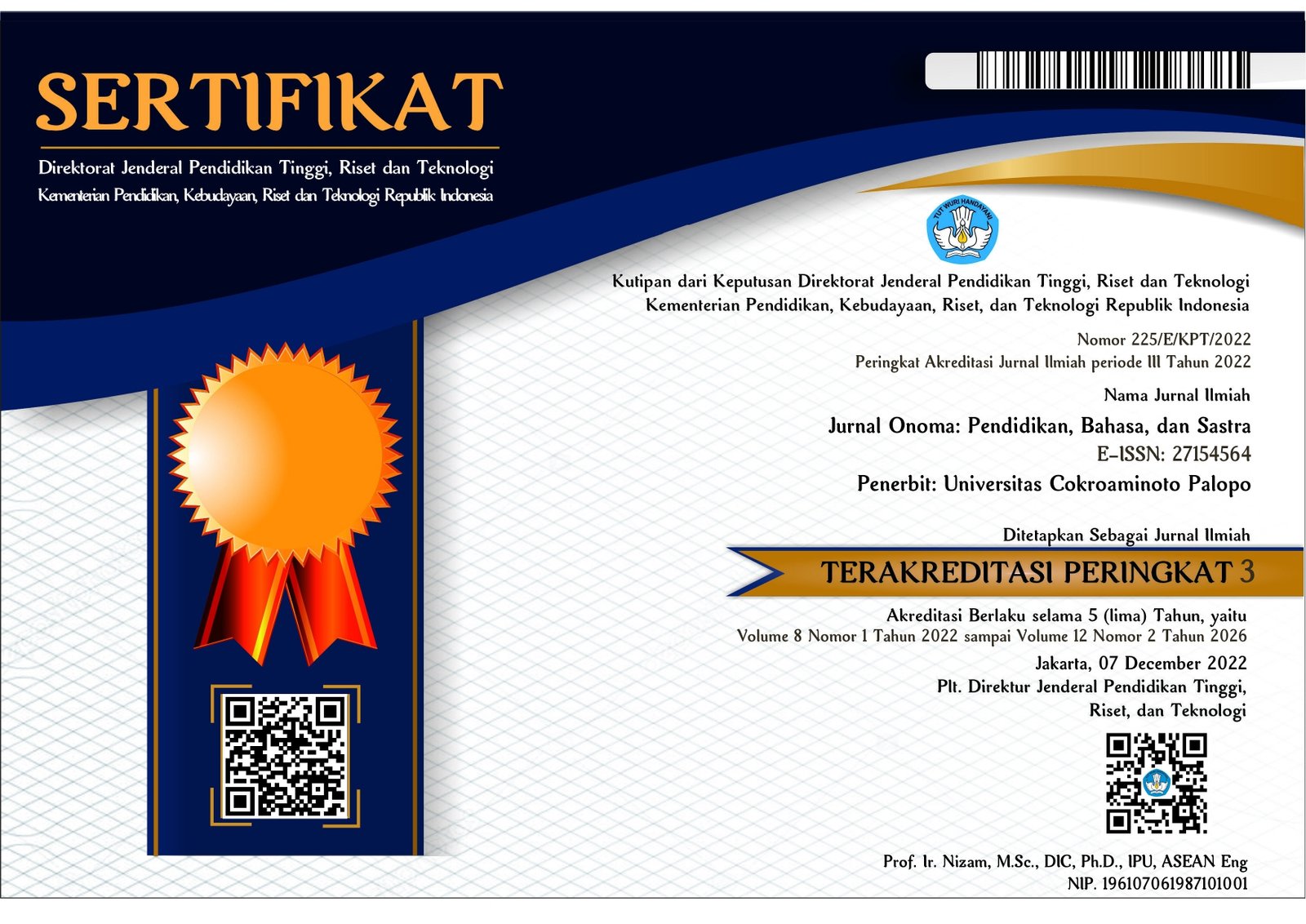Teachers' Views on the Use of ICT in Language Courses
https://doi.org/10.30605/onoma.v11i2.5632
Keywords:
ICT, ESP, Language, Teacher Perception, ChallengesAbstract
This study aims to explore and understand teachers' perceptions regarding the integration of Information and Communication Technology (ICT) in English for Specific Purposes (ESP) instruction, with the goal of identifying both benefits and challenges in real classroom settings. A qualitative case study design was employed to gain in-depth insights into the phenomenon. Data were collected through semi-structured interviews with two experienced language instructors from a private university in South Sulawesi, Indonesia. The interviews were transcribed and analyzed thematically using Nvivo R14 software to ensure systematic coding and theme development. The findings revealed two primary themes: teachers’ positive perceptions and the challenges they face in using ICT. The participants highlighted that ICT tools facilitate ESP teaching by supporting material delivery and increasing student engagement. Nonetheless, they also reported significant challenges, including limited internet connectivity, increased instances of plagiarism, and difficulties in monitoring student performance. This study provides up-to-date insights into the practical realities of ICT integration in ESP instruction within Indonesian higher education, offering valuable implications for educators, policymakers, and curriculum developers aiming to optimize ICT use in language teaching.
Downloads
References
rhmtkamaruddin@gmail.com
Downloads
Published
How to Cite
License
In submitting the manuscript to the journal, the authors certify that:
- They are authorized by their co-authors to enter into these arrangements.
- The work described has not been formally published before, except in the form of an abstract or as part of a published lecture, review, thesis, or overlay journal.
- That it is not under consideration for publication elsewhere,
- That its publication has been approved by all the author(s) and by the responsible authorities – tacitly or explicitly – of the institutes where the work has been carried out.
- They secure the right to reproduce any material that has already been published or copyrighted elsewhere.
- They agree to the following license and copyright agreement.
License and Copyright Agreement
Authors who publish with Onoma Journal: Education, Languages??, and Literature agree to the following terms:
- Authors retain copyright and grant the journal right of first publication with the work simultaneously licensed under Creative Commons Attribution License (CC BY 4.0) that allows others to share the work with an acknowledgment of the work's authorship and initial publication in this journal.
- Authors are able to enter into separate, additional contractual arrangements for the non-exclusive distribution of the journal's published version of the work (e.g., post it to an institutional repository or publish it in a book), with an acknowledgment of its initial publication in this journal.
- Authors are permitted and encouraged to post their work online (e.g., in institutional repositories or on their website) prior to and during the submission process, as it can lead to productive exchanges, as well as earlier and greater citation of published work.

















